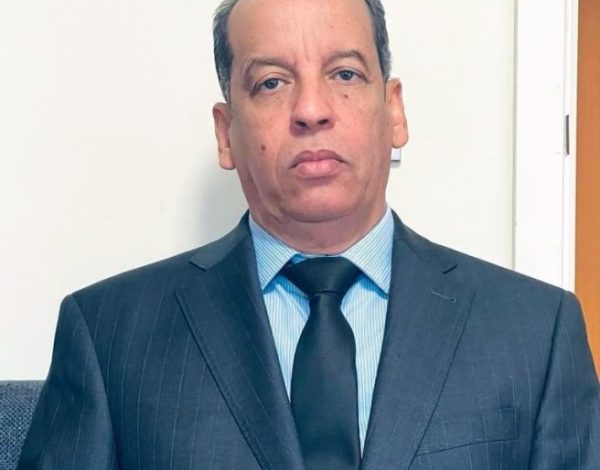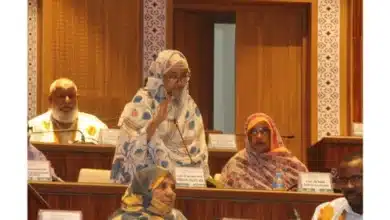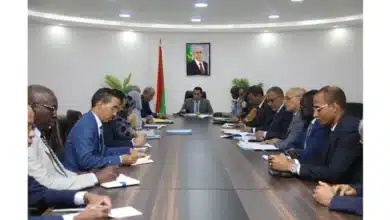A bi-national state is required.

A bi-national state is required.
The Moroccan diplomatic push to recover part of its ‘despoiled territory’ had not succeeded despite the full support of the League of Arab States and a broad alliance of states committed to its cause. Mauritania must be independent to play its role as a link between Black Africa and the Arab world, its ‘natural and cultural vocation’, to use President Moktar’s expression. The Kingdom of Morocco had not taken the right measure of the determination of the colonial power, which, in addition to the desire for independence manifested by a comprehensive political opinion in Mauritania, had its secret agenda, ‘a weapon of imperialism’. Hence, Mauritania had to remain within French West Africa to receive « the right treatment », i.e., the exclusive use of the French language and the adoption of the CFA franc as the national currency, in addition to several other economic and strategic advantages to be retained.
Mauritania’s cooperation agreement with France, signed with France in 1961 in various fields of public life, and the defence and military assistance treaty, illustrates this orientation. President Moktar revised these agreements later and judged them to be of a markedly neo-colonial nature, as ‘they considerably limited our independence and sovereignty, he said. Mauritania, an integral part of Morocco, would not have allowed the Fula-Tekrur activists to demand a bi-national state, meaning a biracial state for which the constitution would enshrine two nationalities. As the Black Mauritanians were already a minority compared to the Arab citizens, in “Greater Morocco”, their democratic weight would be negligible, and the Makhzen would not deal with their ethnic concerns. Thus, they preferred an independent Mauritania, but without accepting the idea of an integrated national body, which in their eyes would represent pure assimilation.
Instead, the Black nationalists would like to establish a more convenient and adequate racial community-based system that would be more convenient and in accord with their ethnocentric doctrine. Immediately, the fears that the supporters of bi-nationalism expressed at the Aleg Conference about constitutional guarantees as a token for their participation in building the future state were back on the table in the first years of independence. In this context, the reasoning of the representatives of the Black community is as follows: ‘If the democratic rule, in which the numerical majority imposes its will on the minority, were applied… the Arab Mauritanian majority could, in certain important areas, impose measures that would harm the Black minority.’ Hence, the demand for a bi-national state in a federal form is a safeguard. In this case, ‘the constitution should provide for the institution of a vice-presidency of the Republic, the incumbent of which would be a compatriot from Futa with real powers; in this way, the executive would be two-headed and also biracial.
Ely Ould Sneiba
Mauritania: the ethnic issue explained.




